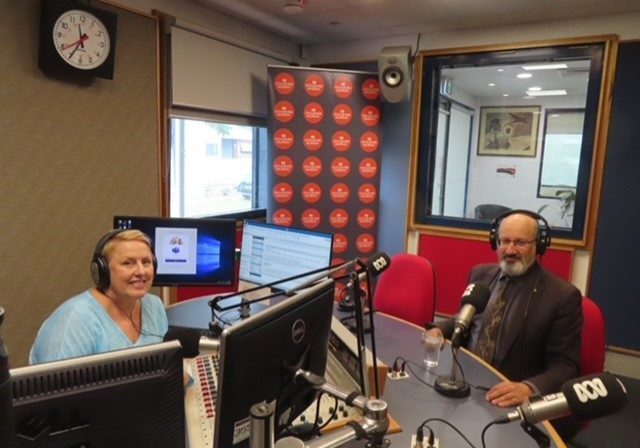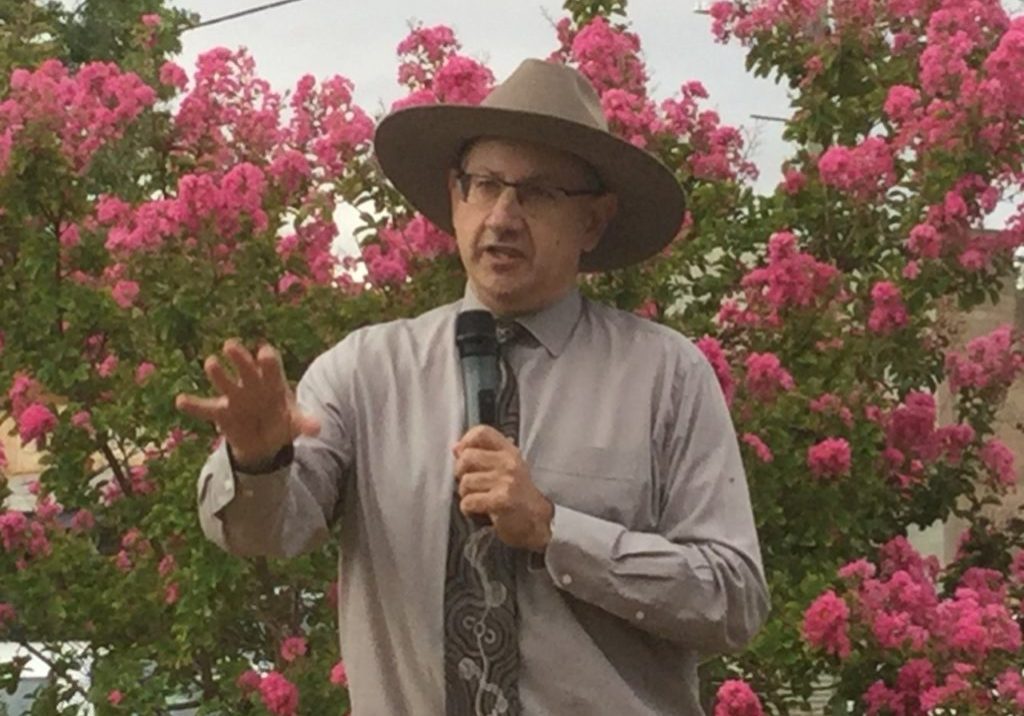Australia/Israel Review
Fratricide
Oct 1, 2005 | External author
Genocidal tendencies in Iraq and Gaza
By Barry Rubin
In the Middle East last month the cats came out of their bags. The truth is out, with teeth bared and claws flashing to reveal the direction of an extremism far too mainstream in the region.
But first it is important to emphasise that the main problem in the area is not terrorism. Indeed, the concept of terrorism is starting to get in the way of understanding what is actually happening. Terrorism is merely a tactic, though one which is revealing about the nature and goals of movements which make it the centrepiece of their strategy.
The real problem is that of extremist revolutionary movements, without constraints on their behaviour and with genocide as their goal, which are applauded by most regimes, media and publicly vocal people of the Arab world and Iran. In short, an extremist minority sets the agenda for means and ends for a majority that accepts these things.
Most remarkable in this context is the statement of Abu Musab al-Zarqawi, a Jordanian who heads al-Qaeda in Iraq and leads the insurgency there. Zarqawi’s movement and its allies daily murder Iraqis — mostly Shi’ite Muslims, sometimes foreigners or other Iraqis — in large numbers using car bombs and guns, as well as decapitating those it has kidnapped. They have done so under the cover of a patriotic movement opposing American occupation of Iraq.
Now, however, Zarqawi has expressed the insurgency’s true objective: the destruction of Iraq’s Shi’ite Muslim majority. This is not only an open call for ethnic civil war in Iraq but a battle cry that could blow up the entire Arab world.
And what has been the response in the Arab world to Zarqawi’s turning the supposed jihad against Christians and Jews into a crusade against fellow Muslims as well? Silence and no diminution of support for his cause.
According to Zarqawi, the Shi’ites are behind Iraq’s new government and are acting collectively as collaborators with the West. The fact that there are Sunnis in the government and parliament, or that Iraqis of all communities are trying to seek a fair system for coexistence is irrelevant to him, and to other Arab leaders as well.
Indeed, the main Sunni complaint has been that the country’s new direction will lead toward Iraq splitting up into Kurdish, Shi’ite, and Sunni states, with the last-mentioned lacking oil wealth. But Zarqawi’s call for communal war is far more likely to bring about, not prevent, such an outcome.
It is important to stress here that the issue is not that all Sunni Iraqis support an anti-Shi’ite war, but that virtually all Sunni Arabs in other countries are applauding it while some — notably Syria officially and Saudi Arabia covertly — are aiding it.
Traditionally, the official line has been that Sunni-Shi’ite differences in the Arab world are small or non-existent, a myth promoted by the Arabs’ enemies. Now, however, that the sword of inter-Muslim battle has been taken up in one place, might it not spread to others? Will this reasoning persuade non-Iraqis that they should condemn, not support, an insurgency that is directed by such a doctrine?
Meanwhile, in the Gaza Strip, it is increasingly clear to all who look at the facts that the Palestinian movement’s goal remains Israel’s complete destruction. Whatever average Palestinians or moderates among the leaders think, those setting the agenda — radical nationalists or Islamists — put total victory and revenge above raising their people’s living standards or getting a state.
Palestinian leader Mahmoud Abbas may have good intentions, but he cannot even protect his own neighborhood. Witness the slaying of Moussa Arafat, formerly in charge of Gaza security for the Palestinian Authority, in a massive shoot-out, without Abbas’s police even bothering to show up.
Abbas gives nice interviews to the Western media explaining how he will persuade militias to give up their guns and implement development programs for Gaza, when it is obvious these things are never going to happen. Meanwhile, all the other factions — including the Islamist group Hamas and many in his own Fatah organisation — openly refuse to obey him or stop attacking Israel.
Indeed, Abbas did not even dare attend the celebration of Israel’s withdrawal that he himself organised. About 10 times more people showed up for the Hamas-sponsored festivities than for his ceremony, which hard-liners disrupted.
For the perfect example of what is going on, consider the smallest extremist organisation Abbas faces. In October 2003, this group killed three Americans working for the State Department in the Gaza Strip. They were finally put on trial for relatively minor offenses, and then allowed to escape. There is no sign that Abbas and his security forces have made any attempt to catch them.
This group has now killed Moussa Arafat, one of the most powerful men in the Gaza Strip. And it is now clear these same people are working for Osama bin Laden’s al-Qaeda.
The lesson: If unstopped by moderates who are supposedly in charge, extremism becomes stronger and worse. Even if it does not formally take over, the radicals who demand permanent struggle use terrorism to shape public opinion and disrupt any chance for stability.
For all practical purposes, then, the much-glorified struggles of the Palestinians and Iraqis — supposedly against foreign oppression — come down to wiping out other local people. This does not bode well for compromise or diplomatic resolution.
The writer, director of the Global Research in International Affairs Center, is editor of the Middle East Review of International Affairs and Turkish Studies. © Jerusalem Post, all rights reserved, reprinted by permission.






